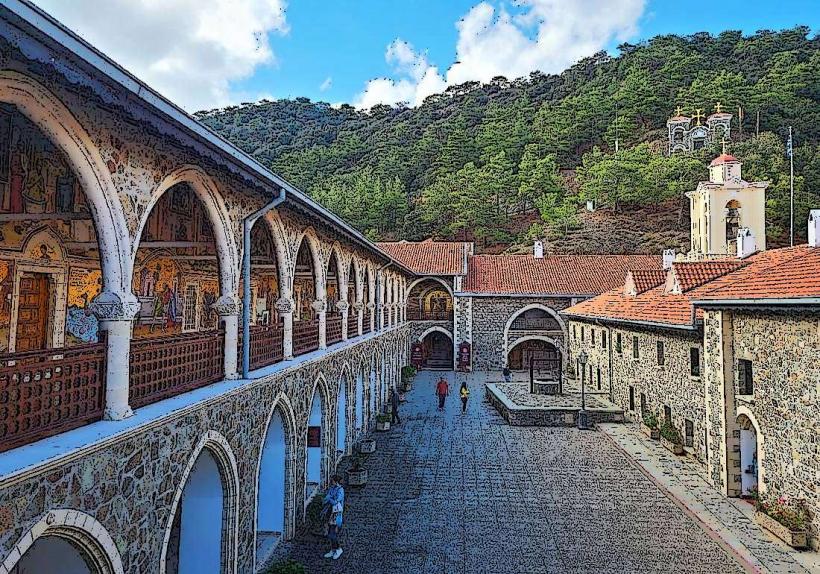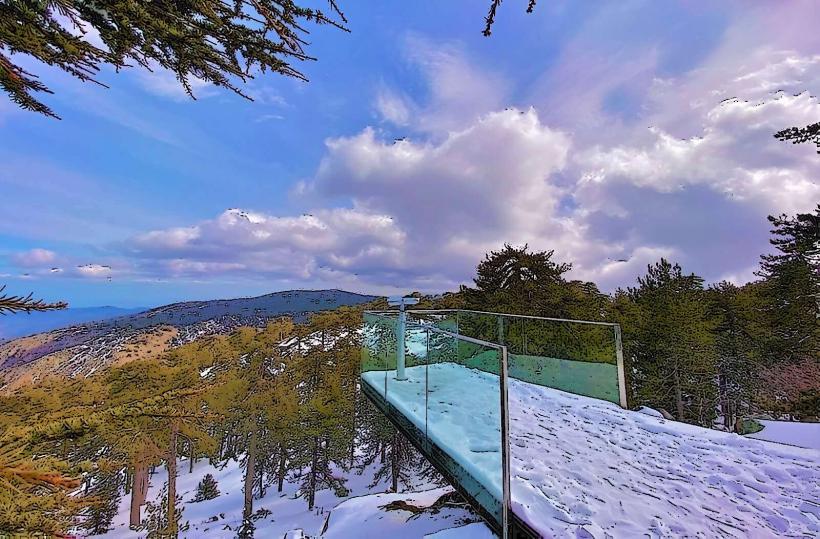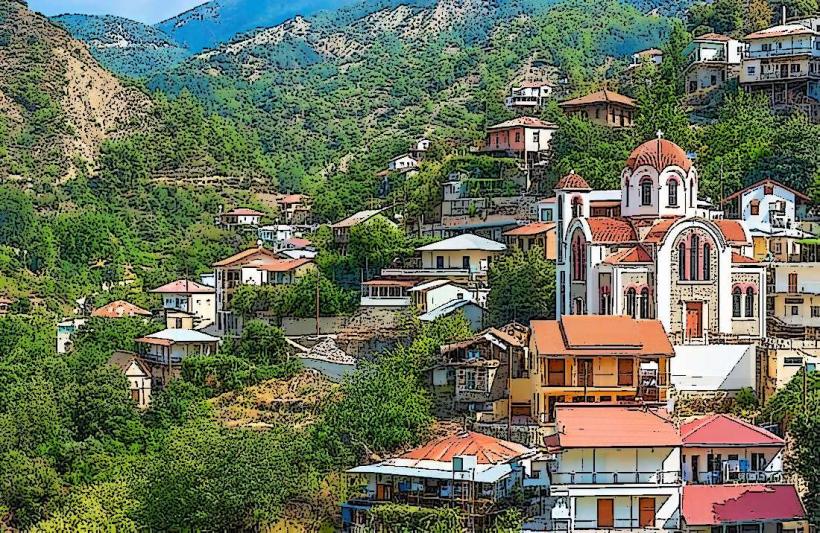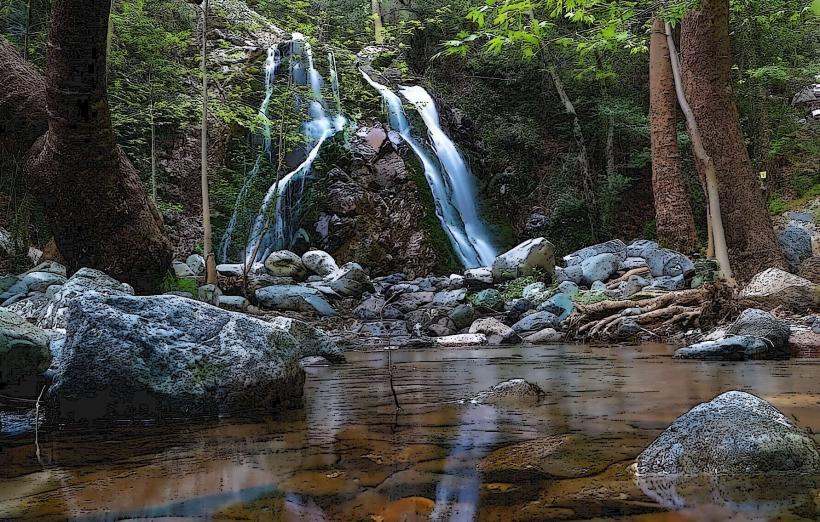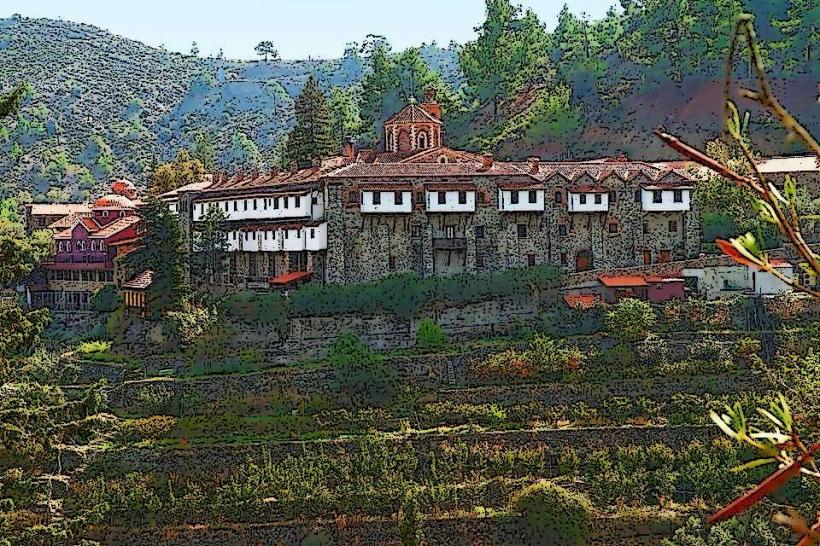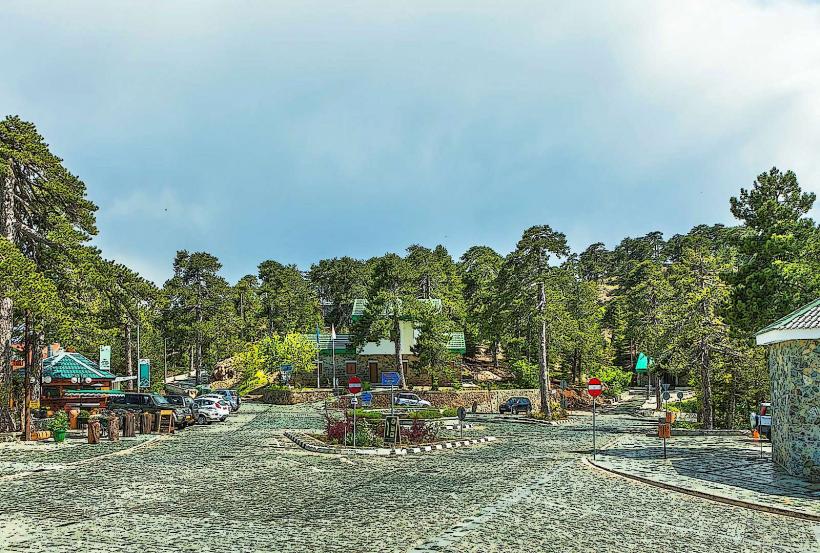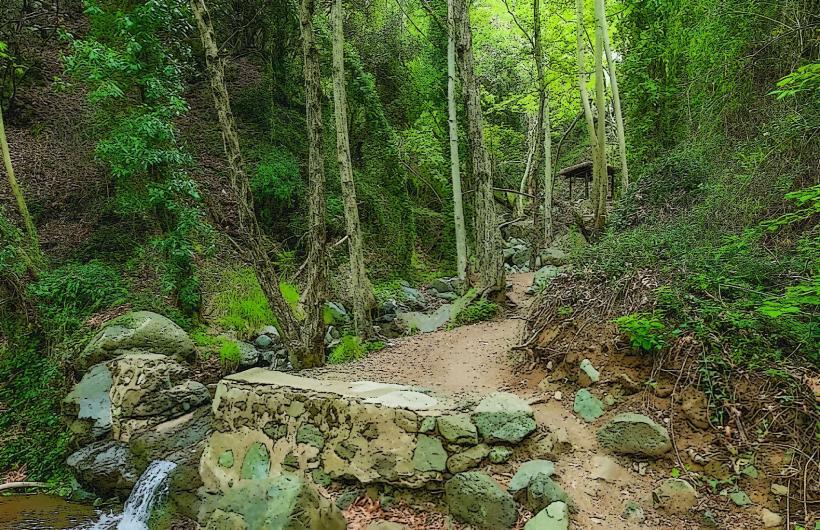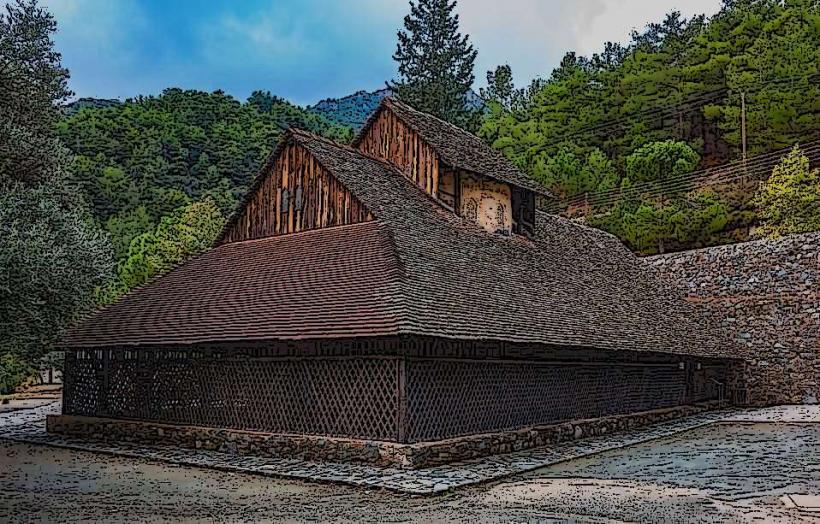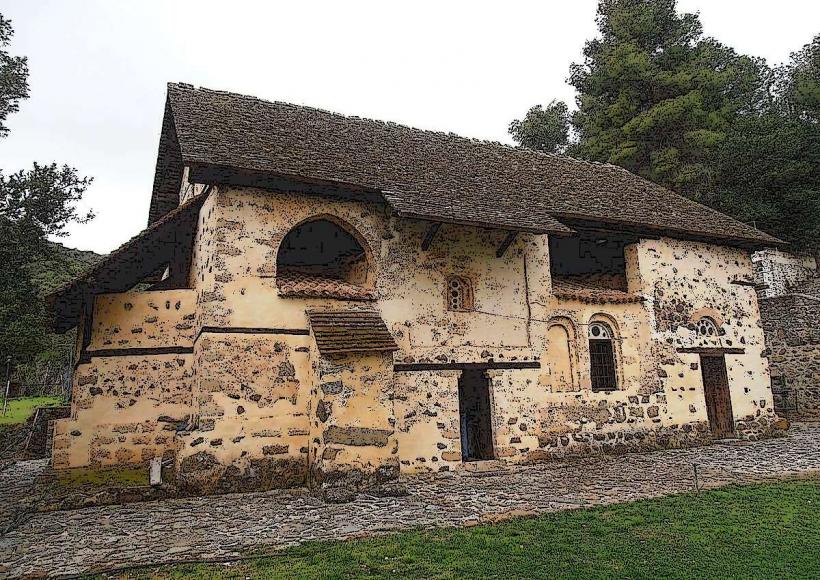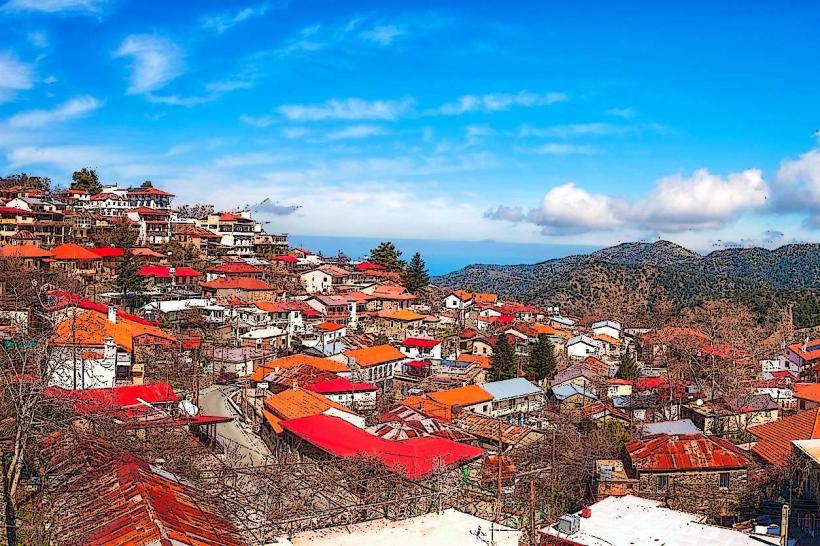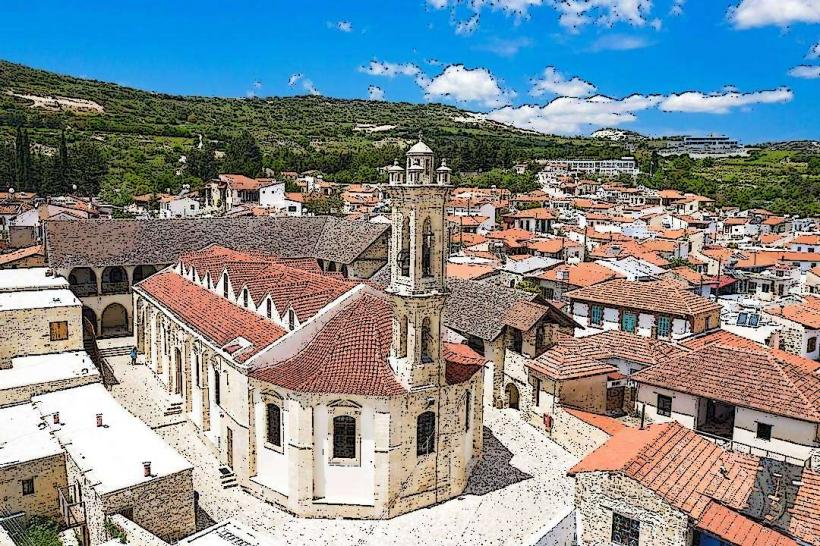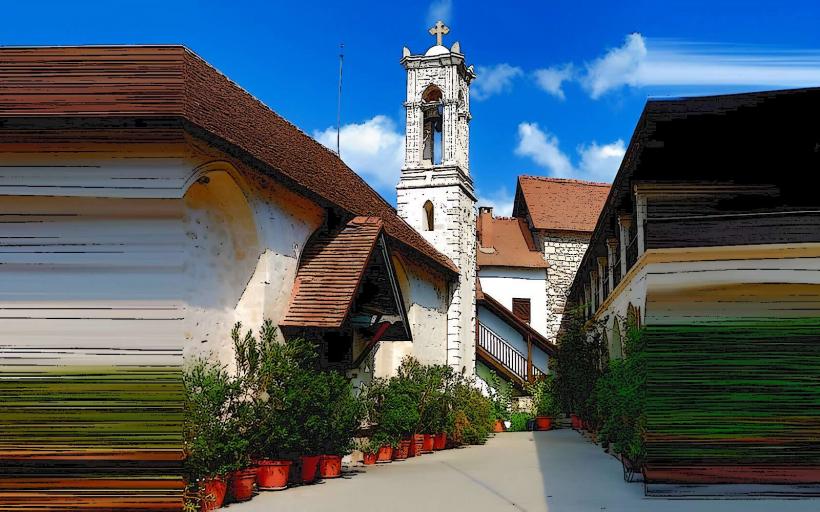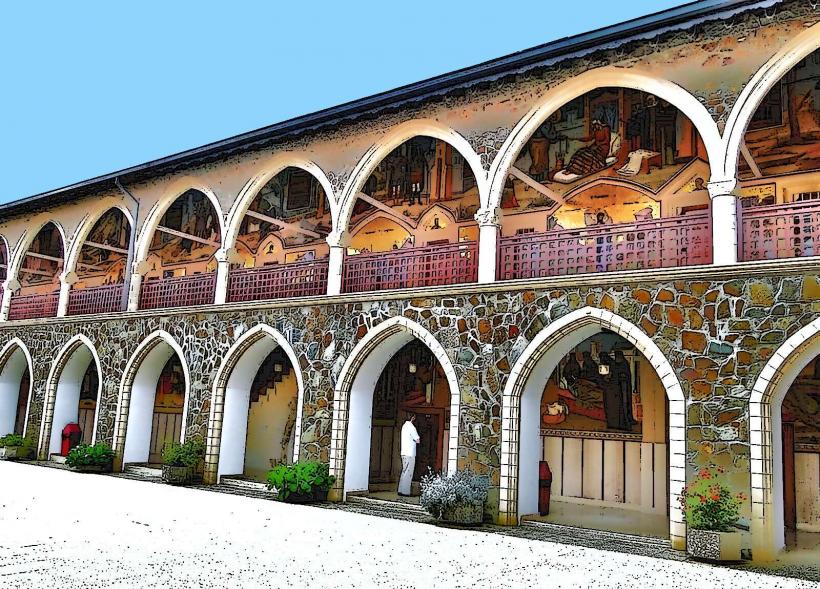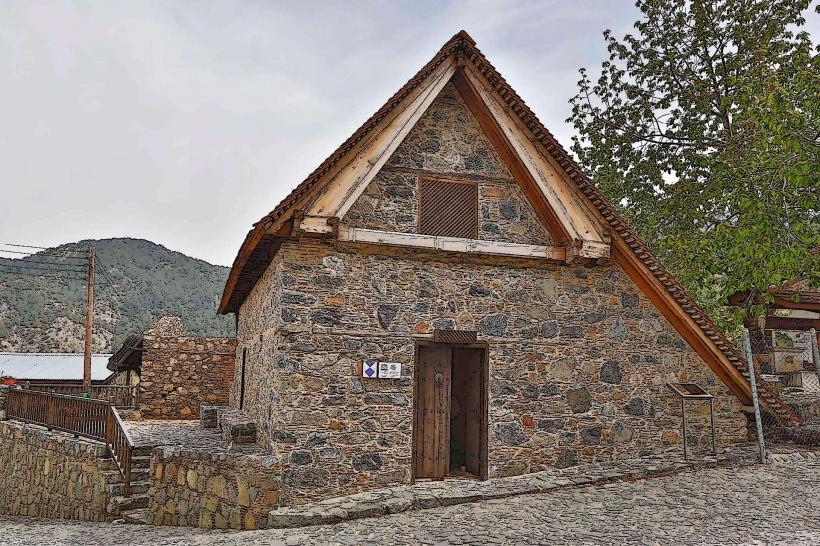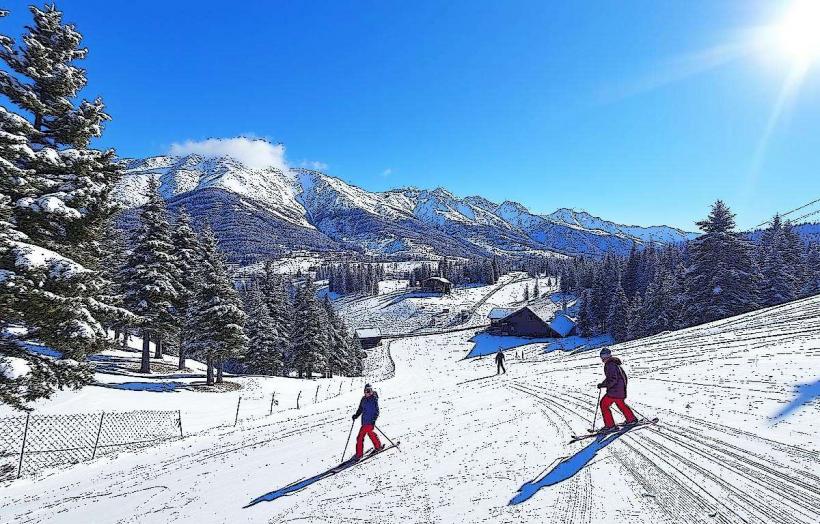Information
Landmark: Agios Georgios MavrovouniCity: Troodos
Country: Cyprus
Continent: Europe
Agios Georgios Mavrovouni, Troodos, Cyprus, Europe
The Agios Georgios Mavrovouni church is a small Byzantine-era Orthodox Christian chapel situated in the Troodos Mountains, specifically near the village of Pano Platres in Cyprus.
Visual Characteristics
This single-aisle church is constructed primarily from local grey stone, featuring a simple rectangular plan and a steeply pitched wooden roof covered with flat tiles. Its exterior is unadorned, reflecting a functional mountain chapel design. The interior preserves remnants of Byzantine frescoes, though their condition varies.
Location & Access Logistics
The church is located approximately 2.5 kilometers northeast of Pano Platres village, accessible via a narrow, paved road that branches off the F815 route. From the center of Pano Platres, follow signs towards Mesa Potamos. Limited unpaved parking is available directly adjacent to the church. Public transport is not directly available; access requires a private vehicle or taxi from larger towns like Limassol or Nicosia, followed by local transport to Pano Platres.
Historical & Ecological Origin
The Agios Georgios Mavrovouni church dates to the 15th century, constructed during the Byzantine period. Its original purpose was a place of worship for local communities and possibly hermits in the surrounding mountainous terrain. The name "Mavrovouni" translates to "Black Mountain," likely referring to the dark igneous rocks and dense pine forests characteristic of this part of the Troodos range.
Key Highlights & Activities
Visitors can observe the exterior architecture and the surviving interior frescoes, which depict religious scenes. The location offers a quiet environment for contemplation and photography of the church and the surrounding pine forest landscape. Short walks on unpaved paths around the church are possible.
Infrastructure & Amenities
There are no dedicated restrooms or food vendors directly at the site. Shade is provided by surrounding pine trees. Cell phone signal (4G) is generally available but can be intermittent due to the mountainous terrain.
Best Time to Visit
The optimal time to visit is during spring (April-May) for mild temperatures and blooming wildflowers, or autumn (September-October) for cooler weather and autumn foliage. Morning hours offer softer light for photography of the church exterior.
Facts & Legends
Local tradition suggests the church was built near a natural spring, a common practice for early Christian sites in Cyprus. The church is dedicated to Saint George, a widely venerated military saint in Orthodox Christianity, often invoked for protection.
Nearby Landmarks
- Caledonia Falls: 3.0km West
- Millomeris Waterfall: 4.5km South
- Pano Platres Village: 2.5km Southwest
- Troodos Botanical Garden: 4.0km North
- Mesa Potamos Monastery: 3.5km East

